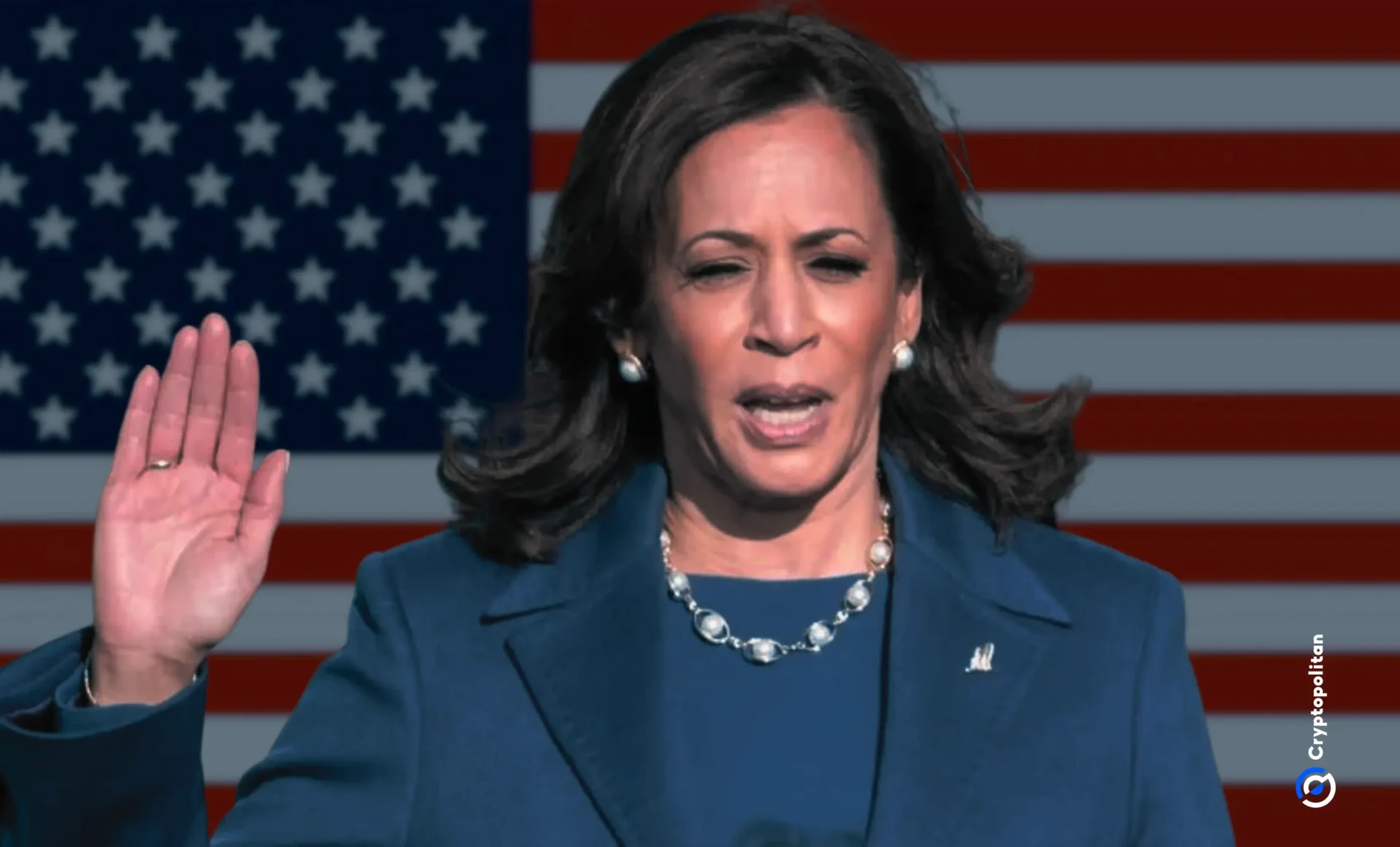Kamala Harris doesn’t care about crypto, and neither does Donald Trump. If you thought Trump was your crypto hero, sorry to burst your bubble.
He talks a big game, but recent actions tell another story. Both Harris and Trump are playing a political game, and crypto is just another pawn in it.
Harris’ crypto U-Turn
Now around three weeks ago, Harris made a rare statement on cryptocurrencies at a New York City fundraiser. She said:
“We will encourage innovative technologies like AI and digital assets while protecting our consumers and investors.”
That event raked in $27 million for her campaign. Mostly because crypto elites like Ripple, Mark Cuban, and Anthony Scaramucci are working tirelessly to sell her to the industry.
Unsurprisingly, Uniswap founder Hayden Adams also welcomed Harris’s statement. But Amanda Wick from Women in Crypto pointed out that it’s all talk with no real policy changes.
Investors and consumers have heard these empty words many times before, and without any concrete proposals, skepticism is high.
Some Democrats are pushing for strict regulations, while others want to see crypto grow. Harris is trying to stay in the middle, appealing to both sides without alienating either.
Meanwhile, the money from crypto supporters is flowing. Chris Larsen, co-founder of Ripple, donated $1 million in XRP tokens to Harris’ campaign just the other day.
The crypto industry has actually been dropping serious cash this election cycle. Over $119 million from crypto-related entities has gone into federal elections.
Trump’s parade
Trump, on the other hand, has tried to paint himself as the “crypto candidate” for a while. He’s been making promises about making America the crypto capital of the world.
Polls show that younger, more diverse groups are more likely to own crypto, and Trump’s making a play for that crowd.
Now let’s talk about his big play: World Liberty Financial, a new DeFi venture that looks just as shady as Trump’s other businesses.
The project came out on September 17 during a livestream on X (formerly known as Twitter). World Liberty Financial claims to let people lend and borrow cryptocurrencies without banks getting in the way.
But the setup, of course, lacks transparency, and there are clear conflicts of interest. World Liberty Financial isn’t even for the average crypto user.
The platform has a governance token, WLFI, but it’s non-transferable and doesn’t offer returns. And get this, only accredited investors (those with a net worth of more than $1 million) can get in.
That’s a far cry from Trump’s claims about helping underserved communities. Around 70% of the equity is held by Trump family members and insiders too, which should tell you just how “decentralized” things are.
It’s all about money for Mr. Trump. He got a taste for digital assets with his NFT trading cards back in 2022, which pulled in nearly $5 million in sales in a single day. And he wanted more.
He’s gotten over $30 million from crypto donors this year. And that’s just the ones that were documented. He wants the U.S. as a leader in crypto, claiming, “If we don’t do it, China’s going to do it.”
Trump’s also been making promises about stockpiling Bitcoin and using the government’s seized Bitcoin for strategic reserves. “If elected, it will be the policy of my administration to keep 100% of all the bitcoin the government currently holds or acquires into the future,” he said.
He’s proposed creating a “Bitcoin and Crypto Presidential Advisory Council” to shape policy. This council, according to Trump, will focus on crafting transparent regulations for the crypto industry.
And, of course, he’s talking about slashing regulations that he claims are strangling innovation. “We will cut regulations broadly across several industries,” he said, promising to get rid of 10 regulations for every new one introduced.
He’s also taken aim at regulatory challenges, especially what he calls “Operation Choke Point 2.0,” which he says is shutting crypto companies out of traditional banking. “We will not allow that to occur,” he said.
But Trump’s plans aren’t without risks. The SEC has cracked down on crypto ventures that blur the line between investment and unregistered securities.
Bottom line: Harris and Trump are both chasing votes, and neither really cares about the crypto community beyond what it can do for their campaigns. Both candidates are playing the game, and crypto’s just another chip on the table.
Plus, the worst thing is, they risk making crypto partisan, which would crush any chances of clear regulations in what is by far the largest crypto market in the world.





